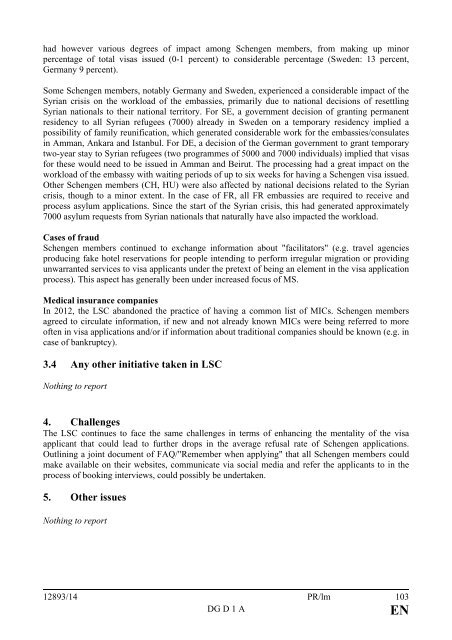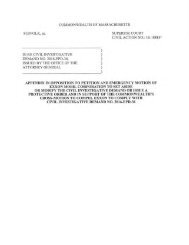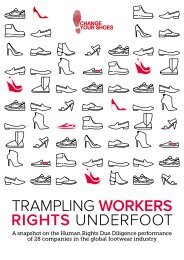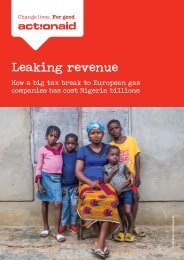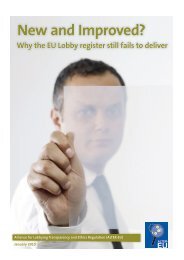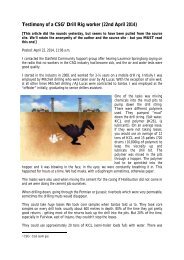eu-com-schengen-coop
eu-com-schengen-coop
eu-com-schengen-coop
You also want an ePaper? Increase the reach of your titles
YUMPU automatically turns print PDFs into web optimized ePapers that Google loves.
had however various degrees of impact among Schengen members, from making up minor<br />
percentage of total visas issued (0-1 percent) to considerable percentage (Sweden: 13 percent,<br />
Germany 9 percent).<br />
Some Schengen members, notably Germany and Sweden, experienced a considerable impact of the<br />
Syrian crisis on the workload of the embassies, primarily due to national decisions of resettling<br />
Syrian nationals to their national territory. For SE, a government decision of granting permanent<br />
residency to all Syrian refugees (7000) already in Sweden on a temporary residency implied a<br />
possibility of family r<strong>eu</strong>nification, which generated considerable work for the embassies/consulates<br />
in Amman, Ankara and Istanbul. For DE, a decision of the German government to grant temporary<br />
two-year stay to Syrian refugees (two programmes of 5000 and 7000 individuals) implied that visas<br />
for these would need to be issued in Amman and Beirut. The processing had a great impact on the<br />
workload of the embassy with waiting periods of up to six weeks for having a Schengen visa issued.<br />
Other Schengen members (CH, HU) were also affected by national decisions related to the Syrian<br />
crisis, though to a minor extent. In the case of FR, all FR embassies are required to receive and<br />
process asylum applications. Since the start of the Syrian crisis, this had generated approximately<br />
7000 asylum requests from Syrian nationals that naturally have also impacted the workload.<br />
Cases of fraud<br />
Schengen members continued to exchange information about "facilitators" (e.g. travel agencies<br />
producing fake hotel reservations for people intending to perform irregular migration or providing<br />
unwarranted services to visa applicants under the pretext of being an element in the visa application<br />
process). This aspect has generally been under increased focus of MS.<br />
Medical insurance <strong>com</strong>panies<br />
In 2012, the LSC abandoned the practice of having a <strong>com</strong>mon list of MICs. Schengen members<br />
agreed to circulate information, if new and not already known MICs were being referred to more<br />
often in visa applications and/or if information about traditional <strong>com</strong>panies should be known (e.g. in<br />
case of bankruptcy).<br />
3.4 Any other initiative taken in LSC<br />
Nothing to report<br />
4. Challenges<br />
The LSC continues to face the same challenges in terms of enhancing the mentality of the visa<br />
applicant that could lead to further drops in the average refusal rate of Schengen applications.<br />
Outlining a joint document of FAQ/"Remember when applying" that all Schengen members could<br />
make available on their websites, <strong>com</strong>municate via social media and refer the applicants to in the<br />
process of booking interviews, could possibly be undertaken.<br />
5. Other issues<br />
Nothing to report<br />
12893/14 PR/lm 103<br />
DG D 1 A<br />
EN


